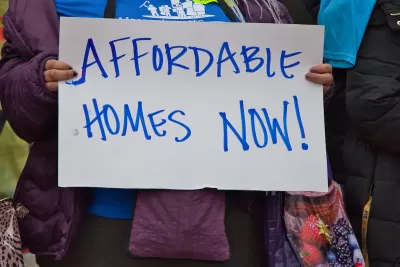A recent study reveals how decades of policy missteps, demographic shifts, and economic forces fueled America’s housing crisis, leaving millions — especially millennials — struggling amid rising demand, racial disparities, and climate-driven emergencies.

A University of Southern California (USC) study highlights how policy missteps dating back to the early 2000s created the foundation for today’s housing crisis, with severe consequences for millennials and communities of color. Researchers traced the origins of the crisis to overcorrections following the 2008 housing bubble burst, including stricter credit rules and underfunded construction, which failed to meet the growing housing needs of the millennial generation. The report emphasizes that the ongoing housing shortage — exacerbated by natural disasters such as wildfires and hurricanes — demonstrates the fragility of the current housing supply, which intensifies displacement and gentrification.
Key contributors to the crisis include underestimations of millennial demand, miscalculations of demographic trends, and flawed measurements of housing needs. For example, policymakers overlooked how a 32 percent rise in birth rates from 1976 to 1990 would translate into increased housing demand as millennials reached home-buying age. The study also details how these missteps led to a cascade of shortages, from rental housing to homeownership opportunities, delaying millennials’ entry into the market and fueling surges in demand after 2015.
Racial disparities in homeownership were another significant finding, with Black Americans facing the largest gaps in recovery from 2008. While Hispanic homeownership surpassed expectations by 2021, white and Black Americans remained below anticipated levels, highlighting systemic barriers and the uneven impact of the housing crisis. Researchers argue for targeted interventions to address these disparities, calling for equitable housing policies that prioritize accessibility for underserved groups.
To address the ongoing challenges, the study recommends more proactive housing policies that account for population growth, demographic shifts, and climate change-driven emergencies. By shortening the lag between demand and supply and integrating population and housing data, policymakers could better prepare for future needs and mitigate the crisis. Without such measures, the housing crisis will continue to worsen, leaving communities vulnerable to displacement and economic instability.
FULL STORY: Long before the L.A. fires, America’s housing crisis displaced millions

Planetizen Federal Action Tracker
A weekly monitor of how Trump’s orders and actions are impacting planners and planning in America.

Restaurant Patios Were a Pandemic Win — Why Were They so Hard to Keep?
Social distancing requirements and changes in travel patterns prompted cities to pilot new uses for street and sidewalk space. Then it got complicated.

Map: Where Senate Republicans Want to Sell Your Public Lands
For public land advocates, the Senate Republicans’ proposal to sell millions of acres of public land in the West is “the biggest fight of their careers.”

Maui's Vacation Rental Debate Turns Ugly
Verbal attacks, misinformation campaigns and fistfights plague a high-stakes debate to convert thousands of vacation rentals into long-term housing.

San Francisco Suspends Traffic Calming Amidst Record Deaths
Citing “a challenging fiscal landscape,” the city will cease the program on the heels of 42 traffic deaths, including 24 pedestrians.

California Homeless Arrests, Citations Spike After Ruling
An investigation reveals that anti-homeless actions increased up to 500% after Grants Pass v. Johnson — even in cities claiming no policy change.
Urban Design for Planners 1: Software Tools
This six-course series explores essential urban design concepts using open source software and equips planners with the tools they need to participate fully in the urban design process.
Planning for Universal Design
Learn the tools for implementing Universal Design in planning regulations.
Heyer Gruel & Associates PA
JM Goldson LLC
Custer County Colorado
City of Camden Redevelopment Agency
City of Astoria
Transportation Research & Education Center (TREC) at Portland State University
Camden Redevelopment Agency
City of Claremont
Municipality of Princeton (NJ)





























